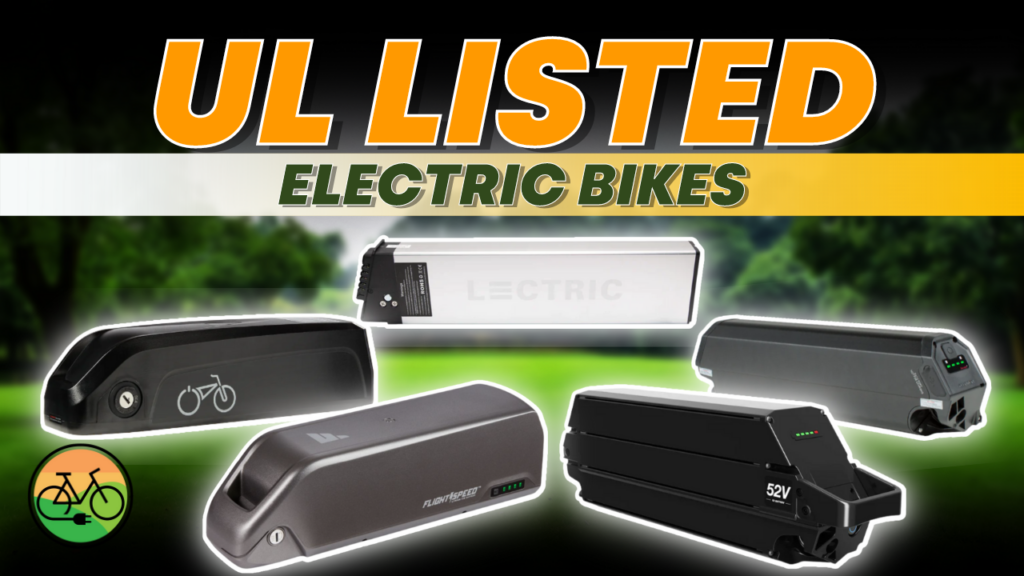
Electric bikes offer a fantastic way to commute, exercise, and explore, but safety, especially concerning their electrical systems and batteries, is paramount. Recent high-profile incidents involving lithium-ion battery fires have brought ebike safety into sharp focus. This has led to increased demand for ebikes and batteries to be certified to UL standards.
This article explains the key UL safety standards relevant to ebikes, clarifies the certification process (including the roles of different testing labs), and provides an updated list of major ebike brands and their stated certification status regarding these important safety benchmarks.
Why is Ebike Certification Important?
Lithium-ion batteries, the power source for most ebikes, store significant energy. While generally safe, manufacturing defects, damage, or improper charging can pose risks like overheating and fire. Certification by a recognized third-party laboratory provides assurance that the ebike’s electrical system and/or battery has undergone rigorous testing to minimize these risks.
While there’s no federal mandate in the U.S. requiring ebike certification yet, regulatory pressure is mounting. Current estimates show that around 15% of ebikes sold in the US are certified to UL standards. It is unclear how often ebikes cause fires, but in New York City alone, fires number into the hundreds each year. Check out the National Fire Protection Associations’ thoughts on ebike safety, including tips to stay safe. And if you’re looking for a fire-resistant battery bag, check out our battery bag. (Amazon or 10% using code “battery” on shop.ebikeescape.com). They are also available in larger sizes.
New York City enacted a law (effective September 2023) requiring all ebikes sold, leased, or rented in the city to be certified to specific UL standards by an accredited lab. The U.S. Consumer Product Safety Commission (CPSC) strongly urges manufacturers and retailers nationwide to comply with these voluntary standards. Adherence to these standards is rapidly becoming a crucial factor for safety-conscious consumers and a key differentiator for reputable brands.
Understanding the Key UL Standards: UL 2849 vs. UL 2271
Two primary UL standards are critical for ebike safety:
- UL 2849: Standard for Electrical Systems for eBikes: This is the system-level standard. It evaluates the entire ebike electrical system – including the battery pack, charger, motor, controller, wiring, and power inlet – as an integrated unit. Certification involves comprehensive testing for electrical shock, mechanical stability, functional safety, and fire hazards during use and charging. UL 2849 provides the highest level of electrical safety assurance for an ebike.
- UL 2271: Standard for Batteries for Use in Light Electric Vehicle (LEV) Applications: This standard focuses specifically on the safety of the lithium-ion battery pack itself. It tests the battery’s resistance to overcharging, short circuits, extreme temperatures, impact, and crushing to prevent fire or explosion risks.
Important Distinction: An ebike can have a battery certified to UL 2271 without the entire bike system being certified to UL 2849. While UL 2271 certification for the battery is good, UL 2849 certification for the whole system offers more comprehensive safety validation.
TÜV Rheinland
We also want to mention that many brands follow TÜV certifications, which is an international standard for safety in electric outputs. Companies that seek this certification may not be based in the US, but may sell their products in the States, requiring further compliance. If you see “TÜV Certified,” your bike adheres to the proper electrical safety guidelines. The TÜV Rheinland lab has recently been recognized by OSHA as a valid lab for UL 2849 standards.
Who Certifies Ebikes? Understanding NRTLs and Certification Marks
While UL Solutions developed these standards, they are not the only organization that can test and certify products to these standards. In the U.S., the Occupational Safety and Health Administration (OSHA) recognizes several Nationally Recognized Testing Laboratories (NRTLs) qualified to perform this safety testing.
Key NRTLs actively certifying ebikes and components to UL standards include:
- UL Solutions (UL Mark)
- TÜV Rheinland (TÜV Mark)
- SGS (SGS Mark)
- Intertek (ETL Mark)
- CSA Group (CSA Mark)
- ACT Laboratory (May test for compliance or work with other NRTLs)
What This Means for You:
- If an ebike or battery is certified to UL 2849 or UL 2271, it will carry the certification mark of the specific NRTL that performed the testing (e.g., TÜV, SGS, ETL, UL).
- Seeing any of these recognized NRTL marks alongside a statement of compliance with “UL 2849” or “UL 2271” indicates the product met the requirements of that standard. Don’t assume only the “UL” mark is valid.
- Be precise with terminology:
- “UL Certified” or “UL Listed” often implies certification by UL Solutions, typically including ongoing factory surveillance and authorization to use the UL Mark.
- “Certified to UL 2849 by [NRTL Name]” (e.g., Certified to UL 2849 by SGS) is a precise description if certified by another lab. Both indicate compliance with the standard’s technical requirements.
- A “Certificate of Compliance” verifies that representative samples passed testing according to the standard at a specific point in time but, as explicitly stated on certificates issued by UL Solutions for some models, may not authorize the use of the official certification mark (like the UL Mark) and doesn’t necessarily imply ongoing factory surveillance. Full certification usually requires this ongoing component. Always look for the actual certification mark on the product itself (bike frame, battery, charger) or confirm the status with the manufacturer.
Lectric Ebikes: All Models Now Certified to UL 2271 & UL 2849 by SGS
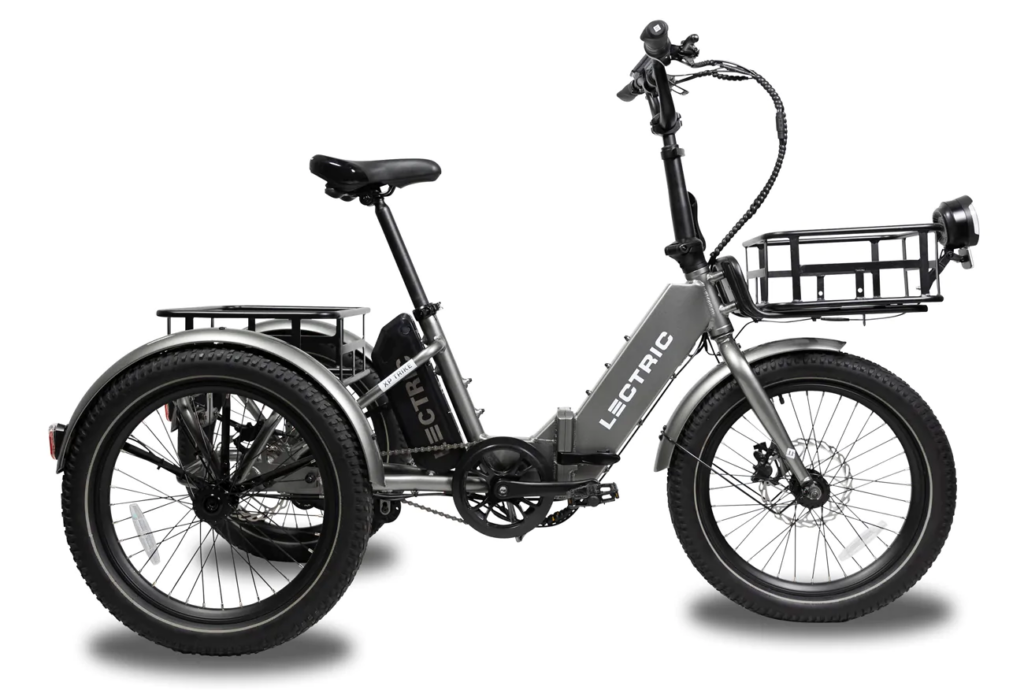
As of November 2023, all Lectric models are certified to UL 2849 and batteries to UL 2271. Being the largest seller of ebikes in North America, it’s great to see Lectric making safety a priority. And even more, Lectric models are the most affordable ebikes we’ve come across to meet these standards.
Check out all of our Lectric reviews here.
Aventon Ebikes: TÜV Certified in Accordance with UL 2849
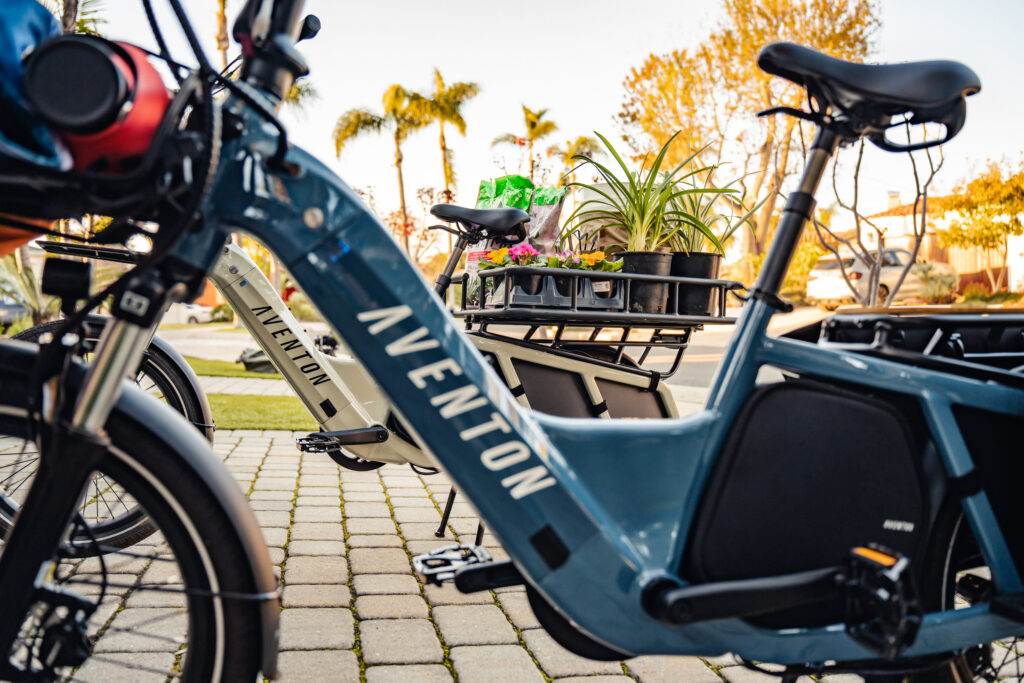
According to Aventon, their ebikes are TÜV certified in accordance with UL 2849. This assures consumers that the Aventon bikes have been certified to meet critical electrical and fire safety standards. You can make sure your model is covered by clicking here.
In fall of 2023, the NY Department of Consumer and Worker Protection also confirmed Aventon is ok under their new law to continue selling with the TÜV testing.
Aventon has an excellent article about taking care of your battery. It covers all the basics of charging and care for your ebike battery, which will decrease fire risk and increase the life of your battery regardless of UL certification.
Check out our reviews of Aventon ebikes here.
Rad Power Bikes: Moving Forward with UL Certification
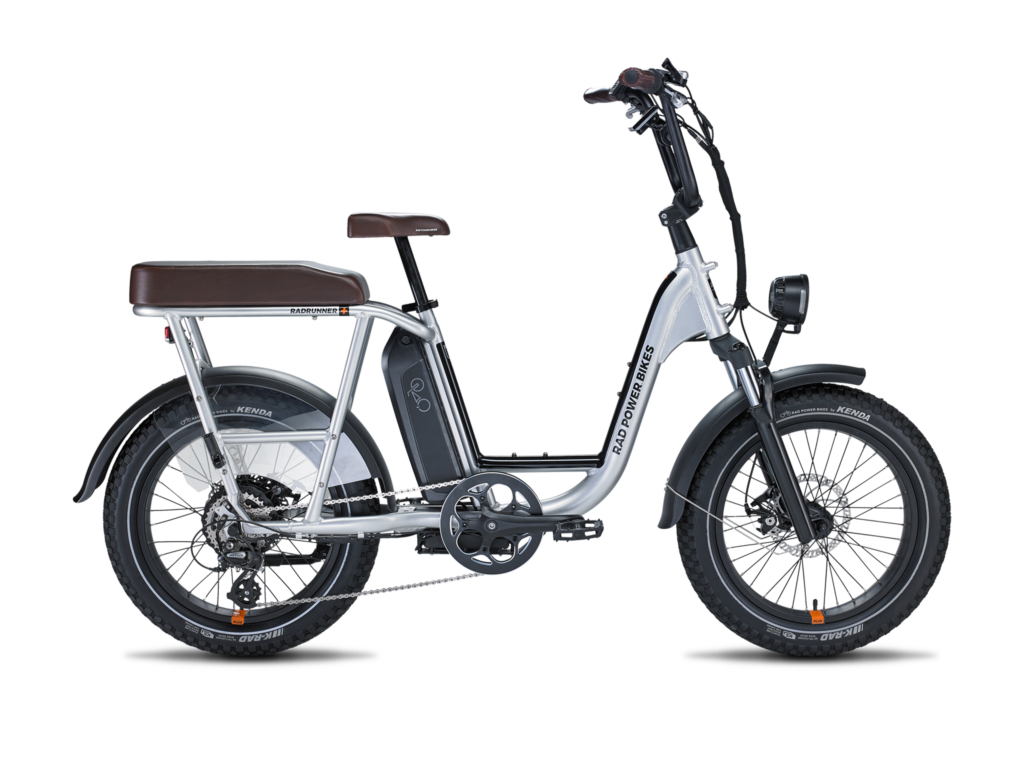
Rad Power Bikes is not a brand-new company, they have been following the European standard, EN 15194, which was available before ebikes took off in the US.
We are glad to report they are also embracing certification to UL 2849! Starting in September of 2023, Rad announced their commitment to sell only models certified to UL standards. While many of their models have already been in compliance with the standard, this certification allows New York City residents to ride the city in safety.
UL certification has become the gold standard of safety compliance. Certifying and testing to the UL standard, as Rad Power Bikes does, ensures that ebike batteries are upheld to the highest standards of safety and have undergone rigorous testing.”
-Rad Power Bikes
Check out our reviews of Rad Power Bikes here.
Flyer Ebikes: All of their Ebikes are Certified To UL Standards
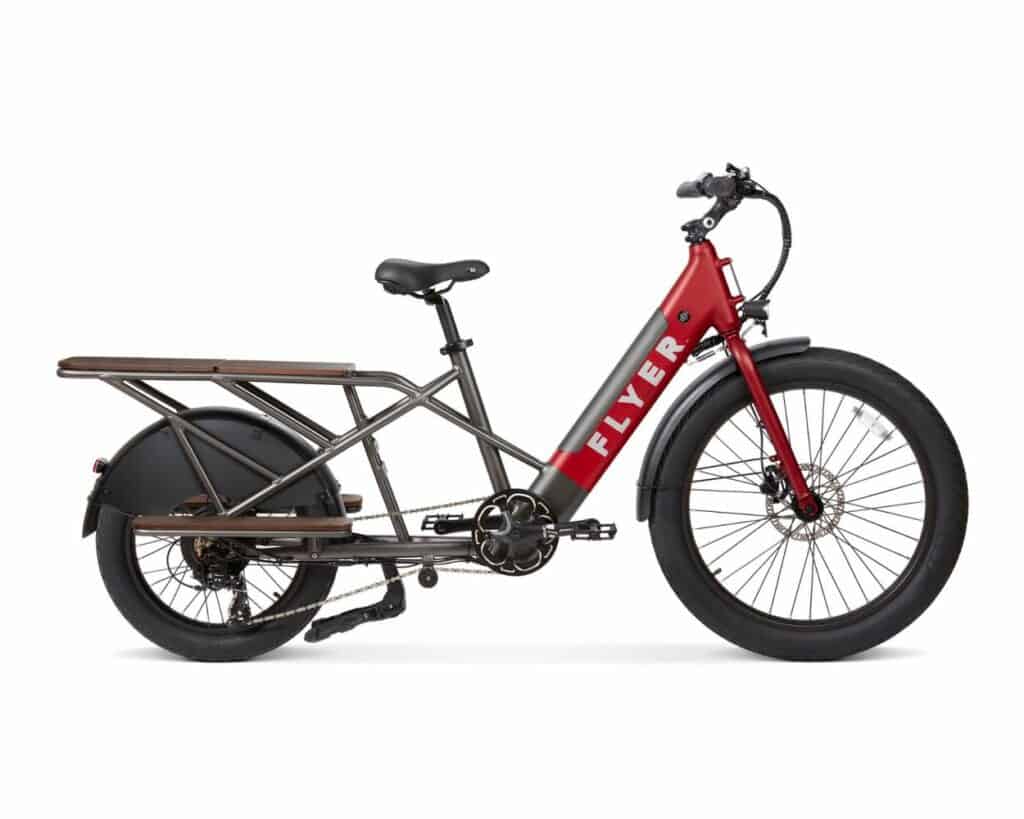
Flyer, the company most known for the little red wagon, takes safety seriously. Unsurprisingly, they already have their bikes meeting the UL 2849 standard. Check out our review of their cargo bike here.
Not only do Flyer™ bikes meet the UL 2849 standard, but all electrical systems undergo extensive life cycle testing. This ensures our motors, controllers, and batteries meet and exceed our extended warranty.
-Flyer
In addition, all Flyer bike frames and forks are ISO4210, an international bicycling safety standard that coves both high-impact and long-term fatigue testing. This further highlights Flyer’s dedication to safety.
Velotric: Certified to UL 2849 and UL 2271 by UL Solutions
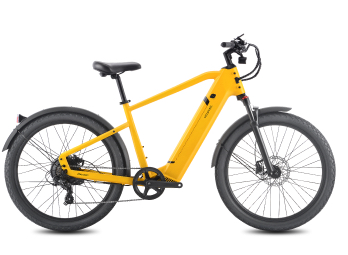
Velotric not only puts electrical safety at the forefront, but they also prioritize the water resistance of their e-bikes (IPX6 rated) and batteries (IPX7 rated). For a safe option for all-weather riding, consider their lineup.
At Velotric, we’ve always wanted to create a bike that balances getting the best key components, while keeping costs down. This hasn’t come at the expense of safety, which is and always has been one of our core values”
-Velotric
Here is a direct link to Velotric’s verification.
Check out all of our Velotric reviews here.
Propella: Up To Standard

While Propella emphasizes fire safety in their ebikes, with the, 9S PRO V2, Mini Max & 7S V4 XR’s batteries being SGS-certified to UL 2271 standards, it’s important to note this certification applies only to the battery itself, not the entire electrical system. UL 2849 is the specific standard for ebike electrical systems and currently their 9S PRO V2’s electronics are the only model SGS-certified per UL 2849.
Pedego Ebikes: SGS Tested to UL Standards

Pedego will be introducing their new 2024 ebikes with the certification to UL 2849 and UL 2271 standards, elevating the brand with Pedego’s resin-battery manufacturing process and extensive testing to create the highest level of safety and performance. This goes above and beyond the requirements of the UL standard and we’re so excited about Pedego’s new safety era!
Ride1Up: Battery-Centric

Good news for safety-conscious riders: Many of Ride1Up’s current bikes, like the popular Revv 1, Portola, and Vorsa, are SGS certified to the UL 2849 and UL 2271 standard and are TUV listed. They’re clear about meeting these important safety benchmarks for those models. They also claim that since 2018, with thousands of their ebikes hitting the road, there has never been a reported battery-related fire.
Euphree: On Their Way

All Euphree ebike models are now certified by SGS. This certification aligns with both the UL 2271 standard for batteries and the UL 2849 standard covering the entire ebike electrical system, indicating compliance with these safety benchmarks.
Gaining a certification with regard to consumer safety is a lengthy process with rigorous testing, but we are excited that Euphree’s lineup is now compliant, as their ebike models deserve all the recognition of a reliable ride!
Learn more about the Euphree City Robin X+.
Bosch: Paving the Way

Bosch ebikes not only thrive on their goal of providing high-quality transportation, built to withstand bumps on the trail and time itself. They have been on par with safety even before New York City’s new regulations.
Since 2021, Bosch has been building their models under UL 2849 and UL 2271 standards. With compliant batteries, controls and all moving parts, riding with Bosch is undoubtedly reliable. So much so, that other ebike brands such as Benno, Bianche, Breezer, Cannondale, Diamondback, Gazelle, Reise and Muller, Trek, Tern, Urban Arrow and Zen use their motor systems, driving their trustworthy brand to further success.
Denago: Eight Models & More To Come

Eight key ebike models under Denago’s portfolio have recently achieved UL 2849 standards. All batteries have already been certified to UL 2271, and this commitment to safety brings them to a new level.
Look for these models when considering a smooth and safe ride with Denago:
- City 1 Top Tube and Step-thru
- Commute 1 Top Tube and Step-thru
- City 2 Top Tube and Step-thru
- Folding 1
- Cruiser 1 Top Tube and Step-thru
- Fat Tire Top Tube and Step-thru
- eXC1
- eXC2
While certifications to UL 2849 and UL 2271 are new for Denago, manufacturing to the standards is not.
Every Denago model has already been built to meet the UL 2849 and UL 2271 standards from the beginning. Formal testing and certification to demonstrate that our bikes and batteries meet those standards, conducted through a UL partner lab, was the next step in our continual process to build safe, reliable eBikes.”
-Denago eBikes
Check out all of our Denago reviews here.
Heybike: TÜV Certified

Heybike clearly states on their website: TÜV Certified in accordance with UL 2849. This means that all Heybike riders are safe to take on the trail!
Considering this brand has a wide market here in the US, as well as Canada, France, Germany, and the UK, adhering to TÜV guidelines ensures that all riders across the globe need not worry about their electric bikes functionality.
Works In Progress
The Ebike Escape team is fully onboard for these exciting updates to the safety of ebikes. We will continually update this list as we find more brands that adhere to these strict safety guidelines, equipping all riders (especially those in NYC!) with a reliable means of environmentally friendly transportation.
A few of the well-known brands that we cannot find UL certifications on their websites include:
While they may have not achieved this certification yet, we know these great brands are working hard to ensure safety and compliance for their customers.
Verification Challenges
While brands are increasingly transparent, verifying certification claims independently can sometimes be challenging. Public databases maintained by NRTLs can be fragmented (e.g., multiple TÜV databases), require registration (UL Product iQ), or have search limitations (SGS directory). The distinction between full certification with mark authorization and a “Certificate of Compliance” based on sample testing adds another layer of complexity.
How to Best Verify:
- Look for the Mark: Check the ebike frame, battery casing, and charger for an official certification mark from a recognized NRTL (UL, TÜV, SGS, ETL, CSA). This is often the clearest indicator of full certification.
- Check Manufacturer Website: Look for dedicated safety or certification pages (like those from Lectric, Euphree, Flyer, Pedego, Velotric). Note any specific language used (e.g., “Certified by…” vs. “Tested to…”) and look for links to actual certificates or database listings.
- Consult Product Manuals: Certification information is often included in the official documentation.
- Contact the Manufacturer: If unsure, ask the manufacturer directly for confirmation of certification to a specific standard (UL 2849 or UL 2271) and the name of the certifying NRTL, and whether the product is authorized to bear the certification mark.
In Conclusion…
Ebikes are becoming more popular in the US, and ownership continues to rise. With New York City banning ebikes and batteries that don’t meet these standards, there is likely to be more pressure for further state and/or federal regulation. We are happy to see ebike companies addressing safety for their ebikes and hope to see others follow suit in adopting UL or equivalent safety standards.

